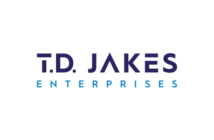By Black News PR
Everybody knows about Uber and Lyft, but there’s a new rideshare company called Tryp that is becoming especially popular with Black and other minority entrepreneurs. It’s the only rideshare platform that allows drivers to keep 100 percent of their fares plus tips.
An increasing number of Uber and Lyft drivers are unhappy because both companies continue to take larger shares of their drivers’ profits. For this reason, in many cities around the world, drivers have protested and some have even gone on strike.
Both companies have gone public on the New York Stock Exchange, and many drivers feel that the companies have become greedy. In the beginning, they cleverly lured drivers with handsome offers to make more money, but now seem to be only interested in pleasing their shareholders.

Tryp is different because it’s not a publicly-traded company, so there are no shareholders to please.
Secondly, as already mentioned, Tryp allows their drivers to keep 100 percent of their fares plus tips. Drivers also get their own merchant account which allows the money they earn to be deposited into their bank account on the same day.
Even more, unlike other rideshare apps, drivers can also build a “book of business” allowing riders to save them as favorites via the app and request them again in the future.
Many ask how Tryp generates revenue if they allow their drivers to keep 100% percent of the fare. Here’s the catch: Tryp charges drivers a reasonably low flat monthly fee of up to $199.99.
In addition to having a very different business model that favors the drivers, Tryp is also giving all drivers who come onboard early the opportunity to earn stock options in the company.
Black entrepreneurs often lose out on tech investment opportunities, but being a Tryp driver allows them to easily gain equity in the company.
Even more, people who have a past criminal record can get a second chance with this opportunity.
Learn more and/or sign up today to become a part of the next big thing! Tryp will officially launch in August 2019 and will be in 100 cities by 2020.


